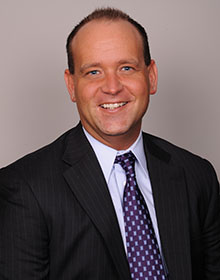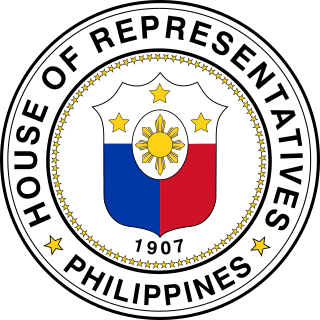
The Office of Management and Budget (OMB) is the largest office within the Executive Office of the President of the United States (EOP). OMB's most prominent function is to produce the president's budget, but it also examines agency programs, policies, and procedures to see whether they comply with the president's policies and coordinates inter-agency policy initiatives.

The speaker of the United States House of Representatives, commonly known as the speaker of the House, is the presiding officer of the United States House of Representatives. The office was established in 1789 by Article I, Section II, of the U.S. Constitution. By custom and House rules, the speaker is the political and parliamentary leader of the House and is simultaneously its presiding officer, de facto leader of the body's majority party, and the institution's administrative head. Speakers also perform various other administrative and procedural functions. Given these several roles and responsibilities, the speaker usually does not personally preside over debates—that duty is instead delegated to members of the House from the majority party—nor regularly participate in floor debates.

The federal government of the United States is the national government of the United States, a federal republic located primarily in North America, composed of 50 states, five major self-governing territories, several island possessions, and the federal district and national capital of Washington, D.C., where most of the federal government is based.
Congressional staff are employees of the United States Congress or individual members of Congress. The position first developed in the late 19th century, and it expanded significantly during the 20th century. Staffers may work with individual members of Congress, or they may be associated with committees or other organizations that support Congress.

The secretary of the Senate is an officer of the United States Senate. The secretary supervises an extensive array of offices and services to expedite the day-to-day operations of that body. The office is somewhat analogous to that of the clerk of the United States House of Representatives.

The Bureau of Legislative Affairs, also known as the "H Bureau", is the office of the United States Department of State that coordinates legislative activity for the Department of State and advises the Secretary, the Deputy, as well as the under secretaries and assistant secretaries on legislative strategy. The bureau facilitates communication between State Department officials and the Members of Congress and their staffs. The bureau works closely with authorizing, appropriations, and oversight committees of the House and Senate, as well as with individual members that have an interest in State Department or foreign policy issues. The bureau manages department testimony before House and Senate hearings, organizes member and staff briefings, and facilitates Congressional travel to overseas posts for members and staff throughout the year. The bureau reviews proposed legislation and coordinates Statements of Administration Policy on legislation affecting the conduct of U.S. foreign policy. The bureau staff advises individual bureaus of the department on legislative and outreach strategies and coordinates those strategies with the secretary's priorities.

The clerk of the United States House of Representatives is an officer of the United States House of Representatives, whose primary duty is to act as the chief record-keeper for the House.
Congressional oversight is oversight by the United States Congress over the executive branch, including the numerous U.S. federal agencies. Congressional oversight includes the review, monitoring, and supervision of federal agencies, programs, activities, and policy implementation. Congress exercises this power largely through its congressional committee system. Oversight also occurs in a wide variety of congressional activities and contexts. These include authorization, appropriations, investigative, and legislative hearings by standing committees; which is specialized investigations by select committees; and reviews and studies by congressional support agencies and staff.

The sergeant at arms of the United States House of Representatives is an officer of the House with law enforcement, protocol, and administrative responsibilities. The sergeant at arms is elected at the beginning of each Congress by the membership of the House.
The parliamentarian of the United States House of Representatives manages, supervises, and administers the Office of the Parliamentarian, which is responsible for advising the House's presiding officers, members, and staff on procedural questions under the U.S. Constitution and House rules and precedents, as well as for preparing, compiling, and publishing the precedents of the House.

The speaker of the House of Representatives of the Philippines, more popularly known as the House speaker, is the presiding officer and the highest-ranking official of the lower house of Congress, the House of Representatives, as well as the fourth-highest official of the government of the Philippines.
Title 2 of the United States Code outlines the role of Congress in the United States Code.

The United States House of Representatives is the lower chamber of the United States Congress, with the Senate being the upper chamber. Together, they comprise the national bicameral legislature of the United States. The House is charged with the passage of federal legislation, known as bills; those that are also passed by the Senate are sent to the president for signature or veto. The House's exclusive powers include, initiating all revenue bills, the impeachment of federal officers, and electing the president if no candidate receives a majority of votes in the Electoral College.
The Boren-McCurdy intelligence reform proposals were two legislative proposals from Senator David Boren and Representative Dave McCurdy in 1992. Both pieces of legislation proposed the creation of a National Intelligence Director. Neither bill passed into law.

The chaplain of the United States House of Representatives is the officer of the United States House of Representatives responsible for beginning each day's proceedings with a prayer. The House cites the first half of Article 1, Section 2, Clause 5 in the United States Constitution as giving it the authority to elect a chaplain, "The House of Representatives shall choose their speaker and other officers".
The United States House of Representatives Page Program was a program run by the United States House of Representatives, under the office of the Clerk of the House, in which high school students acted as non-partisan federal employees in the House of Representatives, providing supplemental administrative support to House operations in a variety of capacities in Washington, D.C., at the United States Capitol. The program ended in 2011, although the Senate Page program continued. Pages served within the U.S. House of Representatives for over 180 years.

The Chairman of the Federation Council of the Federal Assembly of the Russian Federation, also called Speaker (спикер), is the presiding officer of the Upper house of the Russian parliament. It is the third highest position, after the President and the Prime Minister, in the government of Russia. In the case of incapacity of the President and Prime Minister, the chairman of the Federation Council becomes Acting President of Russia.

Deirdre Walsh is Vice President of Washington, D.C. Operations for Ball Aerospace & Technologies. Previously as a federal government employee and member of the United States Intelligence Community, she served as the first chief operating officer (COO) for the Office of the Director of National Intelligence from February 2018 to May 2020.

In the United States, federal impeachment is the process by which the House of Representatives charges the president, vice president, or a civil federal officer for alleged misconduct. The House can impeach an individual with a simple majority of the present members or other criteria adopted by the House according to Article One, Section 2, Clause 5 of the U.S. Constitution.












